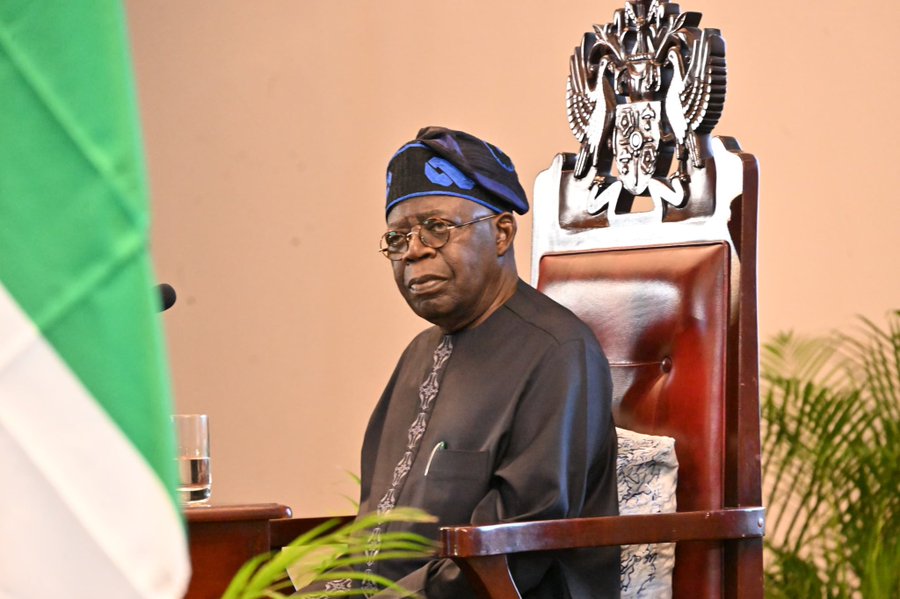A wave of political and public backlash has followed the Federal Government’s failure to formally recognise three Nigerian schoolgirls from Yobe State, who recently brought international acclaim to the country by winning top honours at the 2025 TeenEagle Global Finals in London.
Nafisa Abdullahi Aminu, Rukayya Muhammad Fema, and Hadiza Kashim Kalli stunned the world with their exceptional performance in English language proficiency, debate, and talent categories, outshining thousands of participants from nearly 70 countries. Their victory placed Nigeria firmly in the global spotlight for academic achievement.
While the Yobe State Government, under Governor Mai Mala Buni, announced plans for a grand reception to honour the girls’ success, no such gesture has emerged from the Federal Government. This omission has triggered widespread criticism, particularly in northern Nigeria, where many view the silence as part of a broader pattern of neglect.
Commendation without reward
President Bola Ahmed Tinubu had issued a statement congratulating the students for demonstrating “resilience and boundless potential.” However, unlike recent national sports victories, which were met with substantial financial rewards, national honours, and housing grants, the TeenEagle champions have received no tangible recognition from the Presidency or federal institutions.
This disparity has reignited discussions around regional marginalisation and inequitable recognition of achievements.
Public figures including former Vice President Atiku Abubakar and former Minister Isa Ali Pantami have openly called on the Federal Government to honour the girls with national awards, scholarships, and financial rewards — similar to the treatment given to the Super Falcons and D’Tigress, both of whom received $100,000 each, national honours, and new homes following their recent continental triumphs.
READ ALSO: Nafisa Aminu wins Global English contest, beats 69 countries
On social media, calls for justice and recognition have gained momentum.
Mustapha Aminu Maigano wrote: “Award her with a national honour. Provide a scholarship or lifetime educational grant. Gift her and her family a house and financial reward. Use her story to inspire millions of other Nigerian children. Rewarding Nafisa is rewarding education. It is rewarding the future of Nigeria.”
Is it because they’re from Yobe?
Commentators have expressed concern that the lack of federal response may be tied to the girls’ background — hailing from Yobe, a state often labelled as educationally disadvantaged and heavily impacted by years of conflict.
Mairo Muhammad Mudi asked pointedly: “Is it because they came from Yobe State, a region that has suffered years of conflict and underdevelopment? Or is it because their win did not trend as much on social media?”
Drawing a comparison to the celebratory response following the Super Falcons’ and D’Tigress’ victories, she questioned the criteria used by the government to determine who gets recognised.
“Fatima, Falmata, and Aisha have already made Nigeria proud. Now, Nigeria must make them proud in return,” she added, while criticising northern appointees for failing to relay the region’s frustration to the President.
Backlash, political consequences
As frustrations mount, many in the North are voicing political threats over the perceived snub.
Buhari Abubakar, speaking to NewDailyPrime, stated: “The President doesn’t take the North seriously. He neglects us and our needs. We will show him at the polls.”
In Kano, a resident named A’isha echoed the sentiment: “President Tinubu is not sensitive to our feelings. He doesn’t care. We will do what we must when the time comes.”
This reaction comes amid existing political tension, as key northern figures such as Senator Rabi’u Musa Kwankwaso and former Secretary to the Government of the Federation, Babachir Lawal, have recently accused the Tinubu administration of marginalising the North in key appointments and national affairs.
However, some Nigerians have urged caution, arguing that the achievements of national sports teams should not be compared with those of academic competitions.
Abubakar Ali said: “The Falcons and D’Tigress represented the entire nation on a global stage. This isn’t necessarily about North and South. We must be careful not to politicise every gesture.”
Still, many believe the issue is not about geography but about fairness and values.
For a country that continues to face significant challenges in education, especially in the North-East, the girls’ achievement provided a rare moment of unity and hope.
The Federal Government’s failure to capitalise on this victory, both as a symbol and a catalyst for educational inspiration, has left many disillusioned.
As public debate continues, one thing is clear: Nafisa, Rukayya, and Hadiza have already done their part to make Nigeria proud. Now, Nigerians are waiting to see if their nation will do the same in return.
And in the words of one frustrated supporter, “North will remember.”



